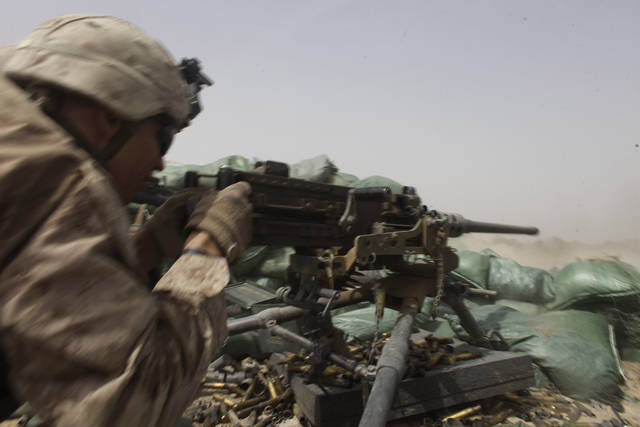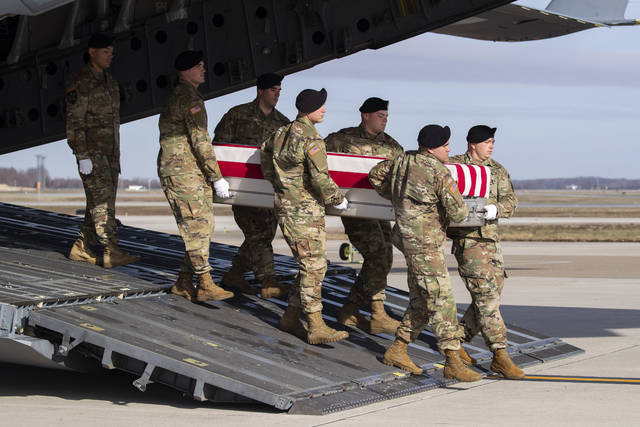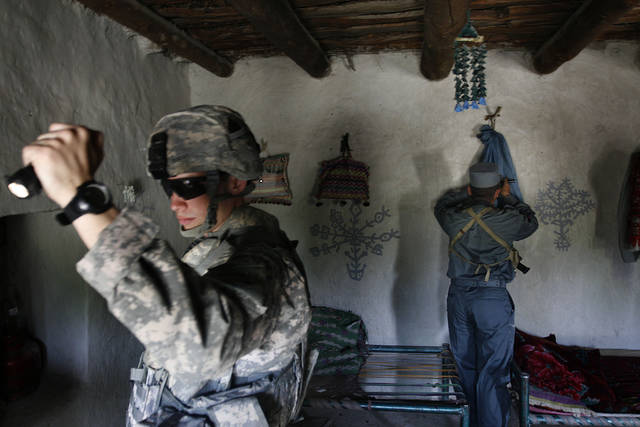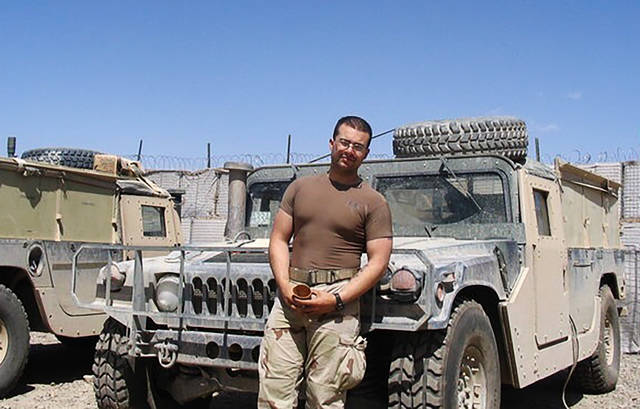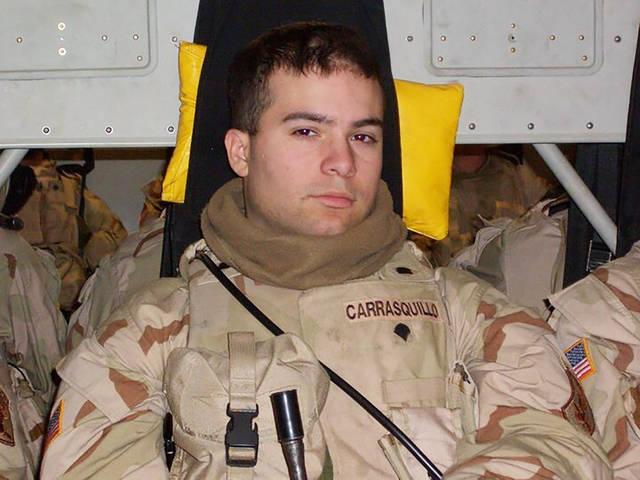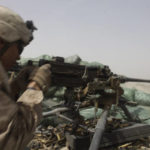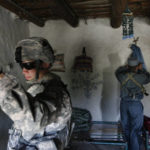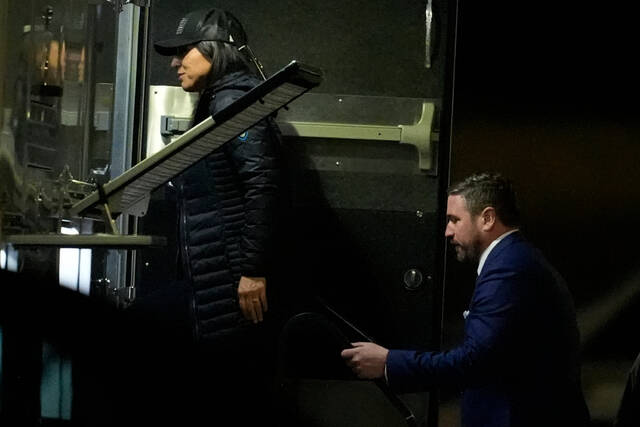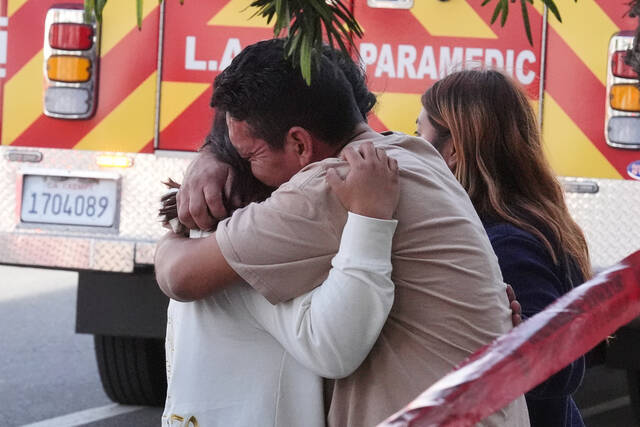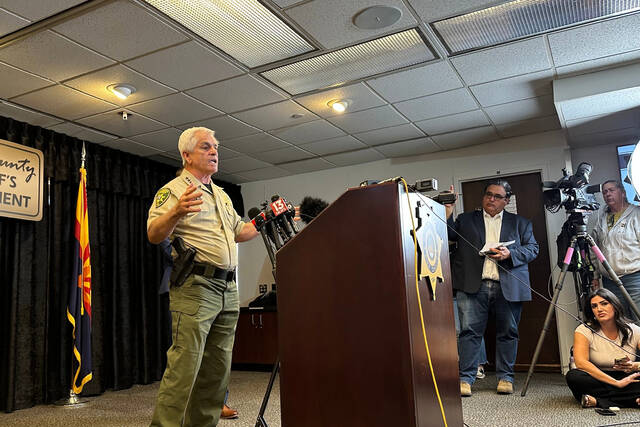SAVANNAH, Ga. (AP) — Veterans of America’s longest war are finding themselves torn as the U.S. signs a potentially historic peace accord with the Taliban in Afghanistan.
For many, the U.S. is long overdue in withdrawing its forces after more than 18 years of fighting. Others question the trustworthiness of the Taliban, whose hard-line government the U.S.-led forces overthrew in 2001. Skeptics worry the Taliban’s re-integration could cause Afghanistan to backslide on such issues as human rights.
“If they sign a peace treaty and Afghanistan goes back to the Taliban or Sharia law, then it’s all been for nothing,” said former Army Staff Sgt. Will Blackburn of Hinesville, Georgia.
Though doubtful the Taliban will abide by the peace deal, Backburn said he’s ready for hostilities to end. He first deployed to Afghanistan in 2004 with an infantry unit of the Army’s 10th Mountain Division. A decade later, his son headed overseas for the same fight.
“Anything that would get us out of that country, I will support fully,” said Blackburn, 58, who left the Army in 2010.
Other Afghanistan veterans interviewed by The Associated Press said that, while the peace deal may not be perfect, it’s time to end the war that began weeks after the 9/11 terror attacks.
The toll has been heavy. More than 2,300 U.S. service members have been killed and more than 20,600 others wounded in Afghanistan since the war began in October 2001.
Former Sgt. Michael Carrasquillo served as an infantrymen in the Army’s 173rd Airborne Brigade when his unit was ambushed in Afghanistan in 2005. Shot five times while dragging a wounded comrade to safety, Carrasquillo spent the next two years in the hospital and underwent dozens of surgeries.
“Peace in any way, shape or form is a good thing,” said Carraquillo, 36, of Monrovia, Maryland, who leads a support group for wounded veterans through the Wounded Warrior Project. “We don’t want more guys to die or to get injured.”
The peace plan calls for the Trump administration to initially draw down U.S. troop levels in Afghanistan from 13,000 to 8,600, with the remaining American forces withdrawing in 14 months.
In return, the Taliban promise not to let extremists use the country to stage attacks on the U.S. or its allies. The Taliban and representatives from Kabul must negotiate a framework for a postwar Afghanistan.
“I know the Taliban, and I never thought they could be trustworthy,” said Cmdr. Tom Porter of the U.S. Navy Reserve, who oversaw media operations in Afghanistan during the U.S.-led troop surge that began in 2010. “I know they have a different view of time and history than we do.”
Porter said he’s concerned the Taliban could abide by the accord long enough to see American forces leave, then try to wrest control of Afghanistan under an assumption the U.S. won’t be willing to return for another fight.
“If you’re the Taliban, people have come and gone and invaded that place for thousands of years,” said Porter, head of government affairs in Washington for the group Iraq and Afghanistan Veterans of America. “Ghenghis Khan has come and gone. They’ve got a long view of things.”
Former Army Capt. Emily Miller’s job focused on communicating with Afghan women and children on deployments in 2011 and 2012 to assist U.S. special operations forces. She said protecting women’s rights and human rights overall needs to be a priority.
Overall, Miller said, she’s thrilled to see a chance for Afghanistan to break from its long history of perpetual war.
“There is this new generation and I think it’s really time to unlock that hope and optimism of Afghans that are really open to peace,” she said. “What’s the alternative to peace? This endless cycle of violence doesn’t really lead anywhere.”
At Fort Stewart in southeast Georgia, Army Staff Sgt. Phillip Wright thinks of himself as “one of the older guys” at age 33. He deployed to Kabul in 2010 with a field artillery unit to help train Afghanistan’s army.
Nowadays, Wright works alongside many young American soldiers who’ve never been overseas. He thinks it’s time for Afghanistan’s military to stand on its own after years of U.S. mentoring.
“We were able to train an army for another country. So I do believe there has been a lot of good that’s come out of it,” he said.
There’s no hesitation from Chris Collins, a former Army Reservist, when asked if it’s time for a U.S. exit.
“It’s not worth one more American life,” said Collins, 38. “Enough is enough.”
Collins’ unit from Missouri deployed to neighboring Uzbekistan in 2004 to run a supply warehouse for U.S. forces in Afghanistan. Returning as a civilian contractor five years later, he concluded little had changed.
“Let’s go home,” said Collins, now training to be a nurse. “We can’t stay there forever. They don’t want us there. It’s no different today than it was 18 years ago, essentially.”


